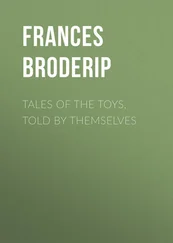Flora Steel - Tales of the Punjab - Folklore of India
Здесь есть возможность читать онлайн «Flora Steel - Tales of the Punjab - Folklore of India» — ознакомительный отрывок электронной книги совершенно бесплатно, а после прочтения отрывка купить полную версию. В некоторых случаях можно слушать аудио, скачать через торрент в формате fb2 и присутствует краткое содержание. Жанр: Сказка, Старинная литература, foreign_antique, foreign_prose, foreign_children, на английском языке. Описание произведения, (предисловие) а так же отзывы посетителей доступны на портале библиотеки ЛибКат.
- Название:Tales of the Punjab: Folklore of India
- Автор:
- Жанр:
- Год:неизвестен
- ISBN:нет данных
- Рейтинг книги:5 / 5. Голосов: 1
-
Избранное:Добавить в избранное
- Отзывы:
-
Ваша оценка:
- 100
- 1
- 2
- 3
- 4
- 5
Tales of the Punjab: Folklore of India: краткое содержание, описание и аннотация
Предлагаем к чтению аннотацию, описание, краткое содержание или предисловие (зависит от того, что написал сам автор книги «Tales of the Punjab: Folklore of India»). Если вы не нашли необходимую информацию о книге — напишите в комментариях, мы постараемся отыскать её.
Tales of the Punjab: Folklore of India — читать онлайн ознакомительный отрывок
Ниже представлен текст книги, разбитый по страницам. Система сохранения места последней прочитанной страницы, позволяет с удобством читать онлайн бесплатно книгу «Tales of the Punjab: Folklore of India», без необходимости каждый раз заново искать на чём Вы остановились. Поставьте закладку, и сможете в любой момент перейти на страницу, на которой закончили чтение.
Интервал:
Закладка:
'Do not be alarmed, my son,' returned the wee old man; 'it is true you are in Demonsland, but no one shall hurt you, for I am the demon Jasdrûl whose life you saved when I was on the earth in the shape of a golden deer.'
Then the demon Jasdrûl took Prince Bahrâmgor to his house, and treated him right royally, giving him a hundred keys, and saying, 'These are the keys of my palaces and gardens. Amuse yourself by looking at them, and mayhap somewhere you may find a treasure worth having.'
So every day Prince Bahrâmgor opened a new garden, and examined a new palace, and in one he found rooms full of gold, and in another jewels, and in a third rich stuffs, in fact everything the heart could desire, until he came to the hundredth palace, and that he found was a mere hovel, full of all poisonous things, herbs, stones, snakes, and insects. But the garden in which it stood was by far the most magnificent of all. It was seven miles this way, and seven miles that, full of tall trees and bright flowers, lakes, streams, fountains, and summer-houses. Gay butterflies flitted about, and birds sang in it all day and all night. The Prince, enchanted, wandered seven miles this way, and seven miles that, until he was so tired that he lay down to rest in a marble summer-house, where he found a golden bed, all spread with silken shawls. Now while he slept, the Fairy Princess Shâhpasand, who was taking the air, fairy-fashion, in the shape of a pigeon, happened to fly over the garden, and catching sight of the beautiful, splendid, handsome young Prince, she sank to earth in sheer astonishment at beholding such a lovely sight, and, resuming her natural shape—as fairies always do when they touch the ground—she stooped over the young man and gave him a kiss.
He woke up in a hurry, and what was his astonishment on seeing the most beautiful Princess in the world kneeling gracefully beside him!
'Dearest Prince!' cried the maiden, clasping her hands,'I have been looking for you everywhere!'
Now the very same thing befell Prince Bahrâmgor that had happened to the Princess Shâhpasand—that is to say, no sooner did he set eyes on her than he fell desperately in love, and so, of course, they agreed to get married without any delay. Nevertheless, the Prince thought it best first to consult his host, the demon Jasdrûl, seeing how powerful he was in Demonsland. To the young man's delight, the demon not only gave his consent, but appeared greatly pleased, rubbing his hands and saying, 'Now you will remain with me and be so happy that you will never think of returning to your own country any more.'
So Prince Bahrâmgor and the Fairy Princess Shâhpasand were married, and lived ever so happily, for ever so long a time.
At last the thought of the home he had left came back to the Prince, and he began to think longingly of his father the King, his mother the Queen, and of his favourite horse and hound. Then from thinking of them he fell to speaking of them to the Princess, his wife, and then from speaking he took to sighing and sighing and refusing his dinner, until he became quite pale and thin. Now the demon Jasdrûl used to sit every night in a little echoing room below the Prince and Princess's chamber, and listen to what they said, so as to be sure they were happy; and when he heard the Prince talking of his far-away home on the earth, he sighed too, for he was a kindhearted demon, and loved his handsome young Prince.
At last he asked Prince Bahrâmgor what was the cause of his growing so pale and sighing so often—for so amiable was the young man that he would rather have died of grief than have committed the rudeness of telling his host he was longing to get away; but when he was asked he said piteously, 'Oh, good demon! let me go home and see my father the King, my mother the Queen, my horse and my hound, for I am very weary. Let me and my Princess go, or assuredly I shall die!'
At first the demon refused, but at last he took pity on the Prince, and said, 'Be it so; nevertheless you will soon repent and long to be back in Demonsland; for the world has changed since you left it, and you will have trouble. Take this hair with you, and when you need help, burn it, then I will come immediately to your assistance.'
Then the demon Jasdrûl said a regretful goodbye, and, Hey presto!– Prince Bahrâmgor found himself standing outside his native city, with his beautiful bride beside him.
But, alas! as the good-natured demon had foretold, everything was changed. His father and mother were both dead, a usurper sat on the throne, and had put a price on Bahrâmgor's head should he ever return from his mysterious journey. Luckily no one recognised the young Prince (so much had he changed during his residence in Demonsland) save his old huntsman, who, though overjoyed to see his master once more, said it was as much as his life was worth to give the Prince shelter; still, being a faithful servant, he agreed to let the young couple live in the garret of his house.
'My old mother, who is blind,' he said, 'will never see you coming and going; and as you used to be fond of sport, you can help me to hunt, as I used to help you.'
So the splendid Prince Bahrâmgor and his lovely Princess hid in the garret of the huntsman's house, and no one knew they were there. Now one fine day, when the Prince had gone out to hunt, as servant to the huntsman, Princess Shâhpasand took the opportunity of washing her beautiful golden hair, which hung round her ivory neck and down to her pretty ankles like a shower of sunshine, and when she had washed it she combed it, and set the window ajar so that the breeze might blow in and dry her hair.
Just at this moment the Chief Constable of the town happened to pass by, and hearing the window open, looked up and saw the lovely Shâhpasand, with her glittering golden hair. He was so overcome at the sight that he fell right off his horse into the gutter. His servants, thinking he had a fit, picked him up and carried him back to his house, where he never ceased raving about a beautiful fairy with golden hair in the huntsman's garret. This set everybody wondering whether he had been bewitched, and the story meeting the King's ear, he sent down some soldiers to make inquiries at the huntsman's house.
'No one lives here!' said the huntsman's cross old mother, 'no beautiful lady, nor ugly one either, nor any person at all, save me and my son. However, go to the garret and look for yourselves.'
Hearing these words of the old woman, Princess Shâhpasand bolted the door, and, seizing a knife, cut a hole in the wooden roof. Then, taking the form of a pigeon, she flew out, so that when the soldiers burst open the door they found no one in the garret.
The poor Princess was greatly distressed at having to leave her beautiful young Prince in this hurried way, and as she flew past the blind old crone she whispered in her ear, 'I go to my father's house in the Emerald Mountain.'
In the evening when Prince Bahrâmgor returned from hunting, great was his grief at finding the garret empty! Nor could the blind old crone tell him much of what had occurred; still, when he heard of the mysterious voice which whispered, 'I go to my father's house in the Emerald Mountain,' he was at first somewhat comforted. Afterwards, when he reflected that he had not the remotest idea where the Emerald Mountain was to be found, he fell into a very sad state, and casting himself on the ground he sobbed and sighed; he refused his dinner, and never ceased crying, 'Oh, my dearest Princess! my dearest Princess!'
At last he remembered the magic hair, and taking it from its hiding-place threw it into the fire. It had scarcely begun to burn when, Hey presto!—the demon Jasdrûl appeared, and asked him what he wanted.
'Show me the way to the Emerald Mountain,' cried the Prince.
Then the kind-hearted demon shook his head sorrowfully, saying, 'You would never reach it alive, my son. Be guided by me,—forget all that has passed, and begin a new life.'
Читать дальшеИнтервал:
Закладка:
Похожие книги на «Tales of the Punjab: Folklore of India»
Представляем Вашему вниманию похожие книги на «Tales of the Punjab: Folklore of India» списком для выбора. Мы отобрали схожую по названию и смыслу литературу в надежде предоставить читателям больше вариантов отыскать новые, интересные, ещё непрочитанные произведения.
Обсуждение, отзывы о книге «Tales of the Punjab: Folklore of India» и просто собственные мнения читателей. Оставьте ваши комментарии, напишите, что Вы думаете о произведении, его смысле или главных героях. Укажите что конкретно понравилось, а что нет, и почему Вы так считаете.












